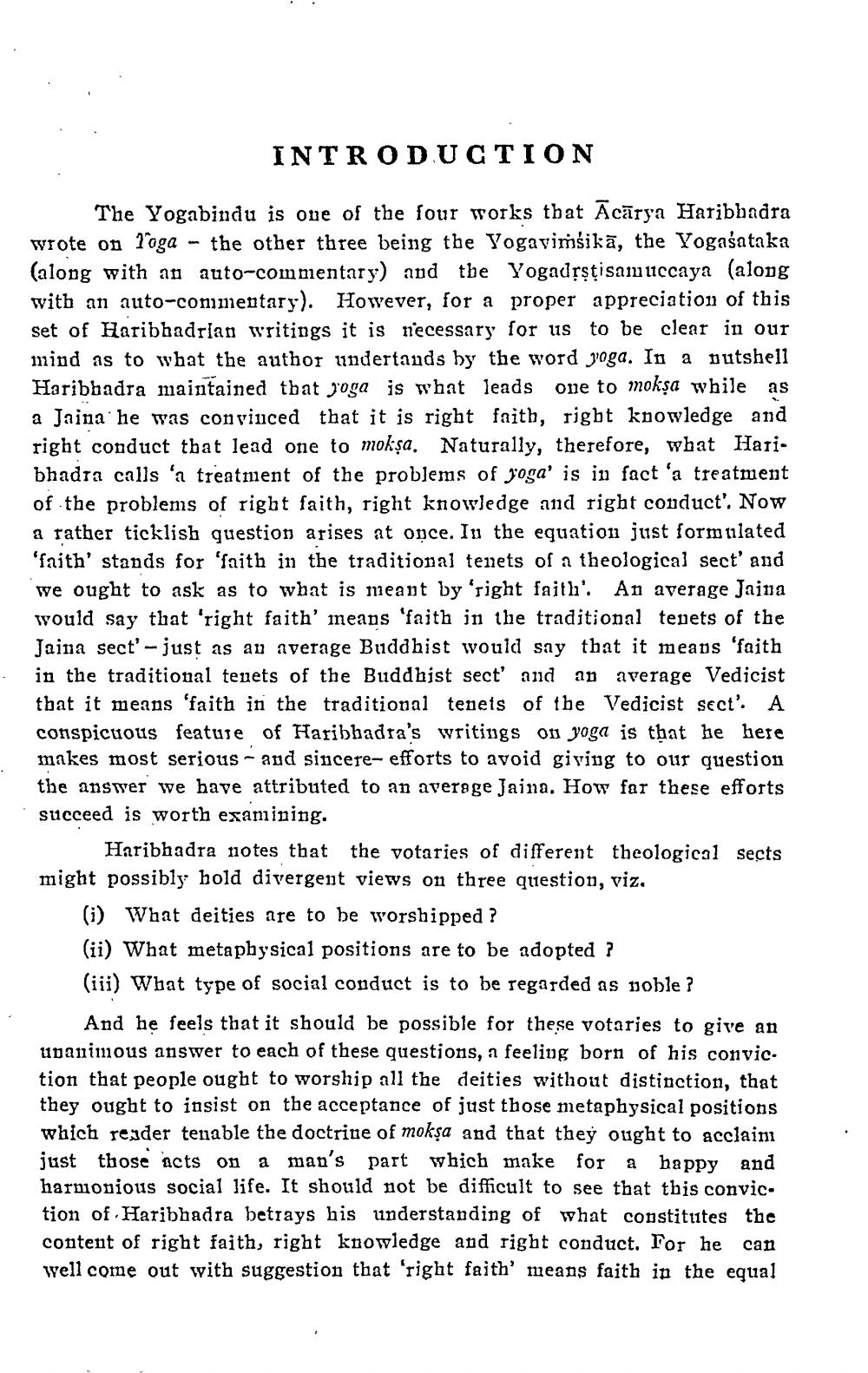________________
INTRODUCTION
The Yogabindu is one of the four works that Ācārya Haribbadra wrote on loga - the other three being the Yogavimśikā, the Yogašataka (along with an auto-commentary) and the YogadȚstisam uccaya (along with an auto-conimentary). However, for a proper appreciation of this set of Haribhadrian writings it is necessary for us to be clear in our mind as to what the author undertands by the word yoga. In a nutshell Haribhadra maintained tbat yoga is what leads one to mokṣa while as a Jaina' he was conviuced that it is right faith, right knowledge and right conduct that lead one to mokşa. Naturally, therefore, what Haribhadra calls 'a treatment of the problems of yoga' is in fact 'a treatment of the problems of right faith, right knowledge and right conduct'. Now & rather ticklish question arises at once. In the equation just formulated 'faith' stands for 'faith in the traditional tenets of a theological sect' and we ought to ask as to what is meant by 'right faith'. An average Jajna would say that 'right faith' means 'faith in the traditional tevets of the Jaina sect' - just as av average Buddhist would say that it means 'faith in the traditional teuets of the Buddhist sect and an average Vedicist that it means 'faith in the traditional tenets of the Vedicist sect'. A conspicuous feature of Haribhadra's writings on yoga is that be here makes most serious - and sincere- efforts to avoid giving to our question the answer we have attributed to an average Jaina. How far these efforts succeed is worth examining.
Haribhadra notes that the votaries of different theological Sects might possibly hold divergent views on three question, viz.
(i) What deities are to be worshipped ? (ii) What metaphysical positions are to be adopted ? (iii) What type of social conduct is to be regarded as noble ?
And he feels that it should be possible for these votaries to give an upanimous answer to each of these questions, a feeling born of his convic. tion that people ought to worship all the deities without distinction, that they ought to insist on the acceptance of just those metaphysical positions which reader tenable the doctrine of mokṣa and that they ought to acclaini just those acts on a man's part which make for a happy and harmonious social life. It should not be difficult to see that this convic. tion of Haribhadra betrays his understanding of what constitutes the content of right faith, right knowledge and right conduct. For he can well come out with suggestion that 'right faith' means faith in the equal




